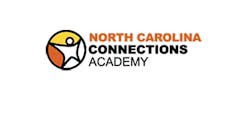North Carolina OKs virtual school's split from for-profit manager
One of North Carolina’s two virtual charter schools will be allowed to break away from a for-profit management company, but it will be placed under state scrutiny as it takes steps to become a locally operated online school.
The Raleigh News & Observer reports that the North Carolina Board of Education has voted to allow North Caroina Connections Academy to end management of the school by Pearson Online and Blended Learning, part of the Pearson company that publishes textbooks and sells education products.
Connections’ board of directors will hire four different vendors to provide the services that Pearson offered. Also, the state Office of Charter Schools and the North Carolina Charter Schools Advisory Board will step up its monitoring of the virtual school.
As part of the split, the school will be renamed N.C. Cyber Academy.
“The board members are pleased to have this matter behind them and are anxious to get ready for the 2019- 2020 school year,” says Bridget Phifer, board chairwoman of N.C. Cyber Academy.
Members of the state school board and the Charter Schools Advisory Board have expressed concern about whether Connections can survive on its own. So the state board placed three conditions Monday on Connections’ board:
▪ The school must provide any information requested by the Office of Charter Schools.
▪ A representative from the school must attend all meetings of the Charter Schools Advisory Board to give updates until further notice.
▪ The Charter Schools Advisory Board will provide quarterly updates on the school to the state board.
The state's two virtual charter schools—Connections Academy and N.C. Virtual Academy, which is managed by K12 Inc.—opened in 2015 in what was originally supposed to be a four-year pilot program.
Both online schools have received D grades for their academic performance for the past three years and are on the state’s list of “continually low-performing schools.”
Despite the poor academic results, state lawmakers extended the pilot program last year through 2023. State lawmakers are also considering a bill that would lift the enrollment cap on both schools and let them grow by 20 percent a year.
The board of Connections says it can save $3 million on the $10 million a year it pays to Pearson and redirect the savings to needs such as higher teacher salaries, reduced class sizes and additional technology.
Connections’ board and Pearson have traded hostile words with each other and are parties to a lawsuit over the management contract.


